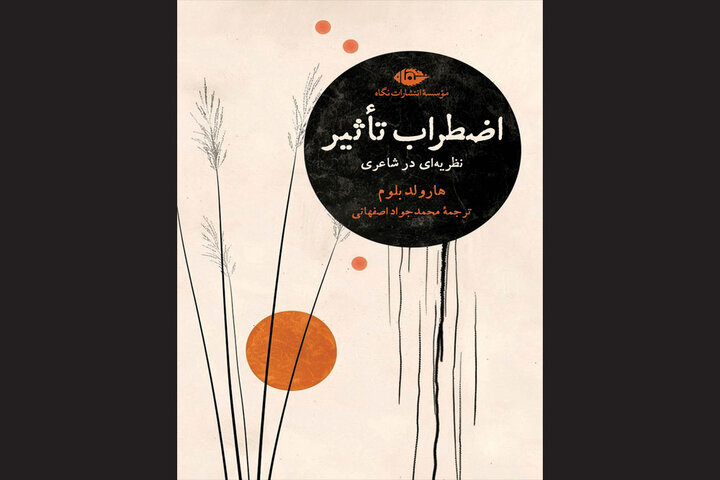Harold Bloom’s “The Anxiety of Influence” available in Persian

TEHRAN-The Persian translation of the book “The Anxiety of Influence: A Theory of Poetry” written by Harold Bloom has been released in the Iranian book market.
Mohammad Javad Esfahani has translated the book and Negah Publications has published it in 288 pages, Mehr reported.
It is a 1973 book on the anxiety of influence in writing poetry. It was the first in a series of books that advanced a new revisionary or antithetical approach to literary criticism.
Bloom's central thesis is that poets are hindered in their creative process by the ambiguous relationship they necessarily maintain with precursor poets. While admitting the influence of extraliterary experience on every poet, he argues that “the poet in a poet” is inspired to write by reading another poet's poetry and will tend to produce work that is in danger of being derivative of existing poetry, and, therefore, weak.
Because poets historically emphasize an original poetic vision in order to guarantee their survival into posterity, the influence of precursor poets inspires a sense of anxiety in living poets. Thus Bloom attempts to work out the process by which the small minority of strong poets manage to create original work in spite of the pressure of influence. Such an agon (a vain attempt by a writer to resolve the conflict between his ideas and those of a much more influential predecessor), Bloom argues, depends on six revisionary ratios, which reflect Freudian and quasi-Freudian defense mechanisms, as well as the tropes of classical rhetoric.
Before writing this book, Bloom spent a decade studying the Romantic poets of the early 19th century. This is reflected in the emphasis given to those poets and their struggle with the influence of John Milton, Robert Burns, and Edmund Spenser. Other poets analyzed range from Lucretius and Dante to Walt Whitman, Wallace Stevens, and John Ashbery.
In “The Anxiety of Influence” and other early books, Bloom claimed that influence was particularly important for post-enlightenment poets. Conversely, he suggested that influence might have been less of a problem for such poets as Shakespeare and Ben Jonson. Bloom later changed his mind, and the most recent editions of “The Anxiety of Influence” include a preface claiming that Shakespeare was troubled early in his career by the influence of Christopher Marlowe.
Harold Bloom (1930-2019) was an American literary critic and the Sterling Professor of humanities at Yale University. In 2017, Bloom was called “probably the most famous literary critic in the English-speaking world”.
After publishing his first book in 1959, Bloom wrote more than 50 books, including over 40 books of literary criticism, several books discussing religion, and one novel. He edited hundreds of anthologies concerning numerous literary and philosophical figures for the Chelsea House publishing firm. Bloom's books have been translated into more than 40 languages.
Bloom was a defender of the traditional Western canon at a time when literature departments were focusing on what he derided as the “School of Resentment” (which included multiculturalism, feminism, Marxism, and other ideologies). He was educated at Yale University, the University of Cambridge, and Cornell University.
SS/
Leave a Comment